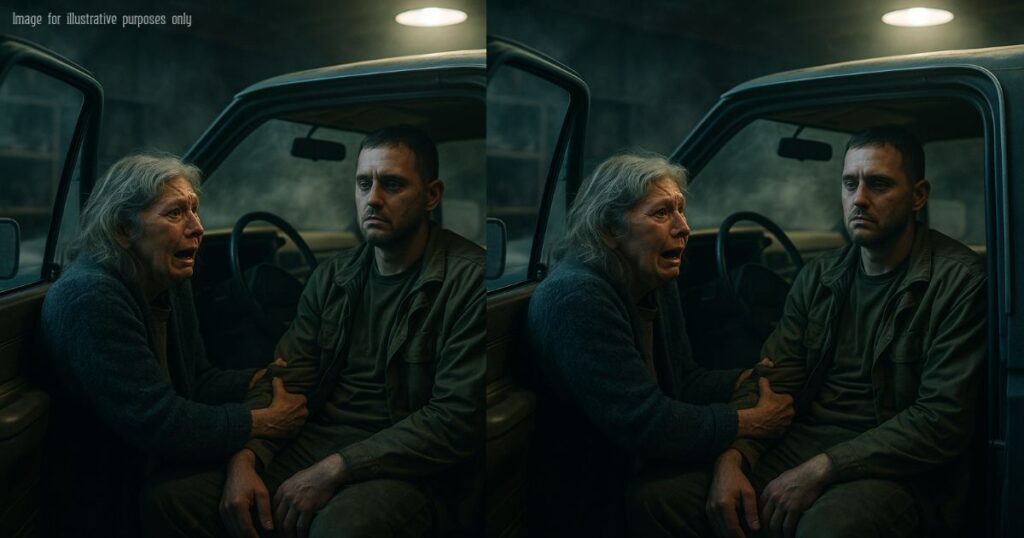I called the store. They said he hadn’t shown up.
Called Jenny. She said maybe he just needed air.
But my gut—my mother’s gut—screamed louder than the wind howling outside. I knew that scream. I’d felt it when the Army car pulled into our driveway in ‘07 before we knew Tommy was safe. I’d felt it when Ed collapsed in the hallway, gripping his chest. And I felt it now, like ice behind my ribs.
I bundled up and drove, not knowing where I was going, only where he might not be. Not the bar—he hated it now. Not the VFW. Not the lake. That left one place.
I turned onto the road past the old steel mill, the one where Ed used to work. The whole place was fenced now, rusted and crumbling, a graveyard of industry. But behind it, through a gap in the trees, was something only locals remembered: the rail yard. Abandoned. Quiet. Full of ghosts.
That’s where I found him.
Truck idling, headlights pointed at the rails. He was sitting on the hood, coat open, face lifted to the snow. Like he wanted to disappear into it.
I parked beside him. Got out. Didn’t say a word.
He didn’t either. Not for a long time.
Finally, he said, “It’s quiet here.”
I nodded. “Your dad used to come here too. When he needed to think.”
Tommy exhaled, slow. “I thought about driving away. Just… going. But I didn’t know where.”
“You don’t have to go anywhere, baby.”
“I don’t know how to stay.”
That broke me. Because it was the truest thing he’d said in years.
We sat in the snow until my fingers went numb.
That night, I made soup and he actually ate it. Didn’t finish, but it was something. And he talked. About the day his friend died beside him. About the smell of burnt sand and metal. About the time he had to drag a wounded child out of a crater. Not all the words. But some.
The VA therapist said it might come in fragments. Like puzzle pieces.
Jenny started coming more often. She brought the baby, who now knew to giggle when Uncle Tommy made silly faces. He fixed the porch light. Replaced the washer hose. Little things. Like he was trying to make up for lost years by repairing what he could touch.
Still, there were nights.
I’d hear the pacing.
Sometimes I’d wake to him outside, smoking in the cold, barefoot.
One night, he knocked on my door at 2 a.m.
“Ma,” he said, voice cracking, “can I sleep in your room, like when I was a kid?”
I moved over without a word. He lay there, staring at the ceiling. Didn’t sleep. But he stayed.
The next day, he shaved. Not just the beard—everything. Trimmed his hair. Put on a collared shirt. Said he had an interview.
“I’m not ready,” he admitted. “But I want to try.”
I hugged him so tight I think I popped his shoulder. He laughed again. That sound—rough, rusty—was worth more than a thousand medals.
He didn’t get the job. But he tried. And that, for once, felt like enough.
That weekend, we had Sunday dinner. Jenny and her husband brought ribs. I made mashed potatoes. The baby smeared peas all over her face. Tommy sat at the head of the table, where Ed used to sit.
And when the baby threw her spoon and hit his forehead, he roared with laughter so loud it startled even me.
He looked at me then, eyes wet but shining. “It’s still in there, Ma,” he said, tapping his chest. “I think I just forgot where to look.”


